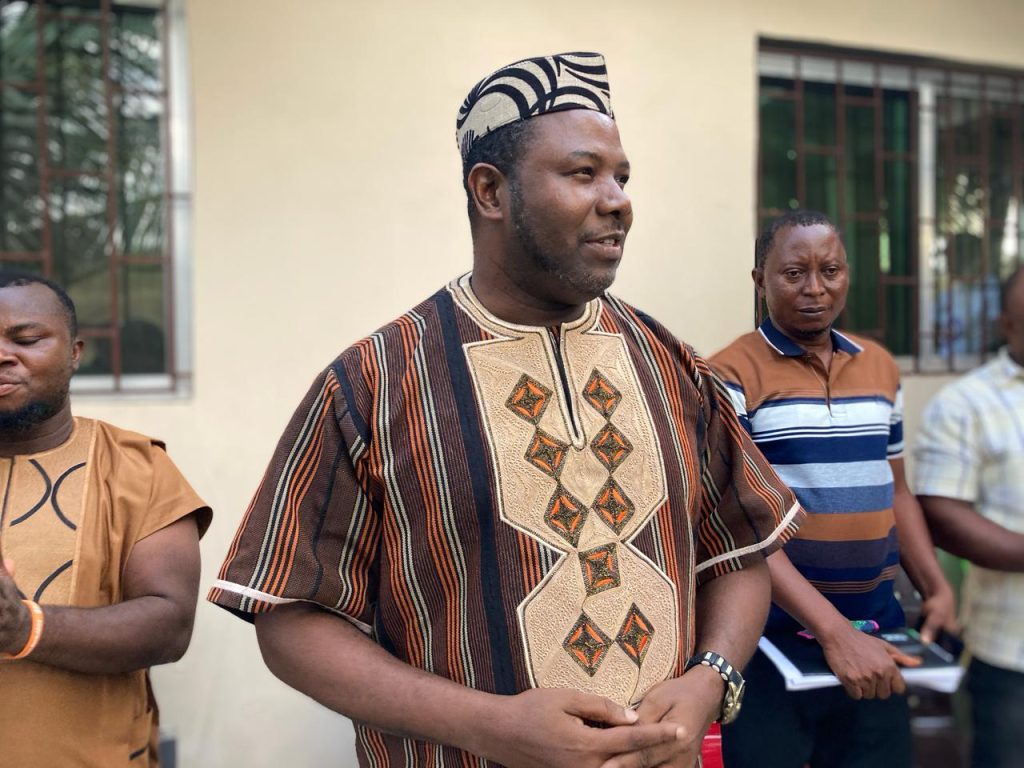In a recent interview, Rev. Luther Tarpeh, the national chairman of Liberia’s governing Unity Party, offered a strong defense of the nation’s diplomatic relations with China while downplaying any potential impact on its longstanding ties to the United States. In the context of rising tensions between the U.S. and China, Tarpeh asserted that Liberia’s relationship with China is not a threat to American interests and emphasized that America-Liberia relations are deeply rooted and continue to be vital. He asserted that since the Unity Party came to power, their focus has been on reaffirming Liberia’s commitment to the One-China policy, highlighting its importance in advancing Liberia’s national development agenda and fostering economic growth.
Tarpeh underscored the historical ties Liberia shares with the United States, referring to it as a “traditional upbringing” that has proven beneficial over the years. He reassured that Liberia seeks partnerships that will enhance the livelihoods of its citizens, and this search for “friends” in development includes engaging with China. The chairman noted that there is no merit to critics who argue that Liberia’s growing relationship with China could endanger its ties with the U.S. He stressed that the Unity Party is proactive in safeguarding the integrity of its relationships with both nations, noting that discussions surrounding this topic must be based on factual evidence rather than unfounded criticisms.
The Unity Party administration views the supportive role of China in Liberia’s development as a positive contribution, with Tarpeh expressing gratitude for the broad spectrum of infrastructure and other development projects announced by the Chinese government. He recalled the country’s struggles post-civil war and articulated the significance of these projects as crucial steps toward national recovery and growth. Tarpeh’s remarks aimed not only to quell concerns about China’s influence in Liberia but also to portray a narrative of policy coherence where Liberia can maintain multi-faceted international partnerships without jeopardizing existing connections.
At the celebratory event marking the 75th anniversary of the People’s Republic of China, Tarpeh reiterated that the Chinese government’s commitment to supporting Liberia resonates with the Unity Party’s values and priorities. He emphasized that this collaboration is critical for the ongoing development initiatives that the Liberian government is undertaking to uplift citizens’ standards of living. The chairman seemed optimistic about the direction of Liberia’s international relations, emphasizing the country’s agency in forming partnerships conducive to its development goals.
Beyond just economic considerations, Tarpeh’s discourse reflects a more significant geopolitical landscape where smaller nations navigate the complex dynamics between global powers. By recognizing both the United States’ enduring influence and China’s rising support, Liberia positions itself as a sovereign state making calculated decisions for its national interests. Tarpeh’s statements work concurrently to reassure domestic audiences and international observers that Liberia aims to leverage its relationships with both major powers for strategic benefit.
In conclusion, Rev. Tarpeh’s comments encapsulate a broader narrative around Liberia’s foreign relations, revealing the government’s commitment to fostering strong ties with China while simultaneously upholding its traditional partnership with the United States. This diplomatic balancing act highlights Liberia’s focus on sustainable development and economic improvement, demonstrating an eagerness to embrace international cooperation in a way that does not compromise its foundational relationships. As Liberia moves forward, the Unity Party’s diplomatic strategy will likely continue to emphasize the importance of maintaining amicable and mutually beneficial relationships with various international partners.














